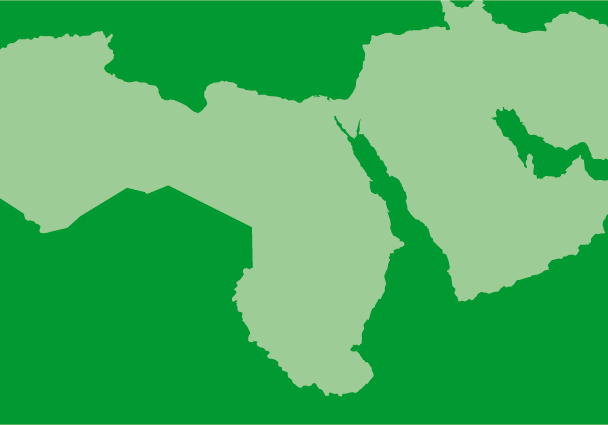
Nov 22, 2023 | Advocacy, Joint Statement
In light of credible allegations of ongoing violations of international humanitarian law arising from the protracted armed conflict in Israel and the Occupied Palestinian Territory, in particular in the Gaza Strip, the International Commission of Jurists (ICJ), Amnesty International (AI), and Human Rights Watch (HRW) support the call by a number of High Contracting Parties to the 1949 Geneva Conventions addressed to Switzerland, in its capacity as the depository of the four Geneva Conventions, to convene an urgent Conference of High Contracting Parties to the Geneva Convention Relative to the Protection of Civilian Persons in Time of War of 12 August 1949 (“the Fourth Geneva Convention”).
This call is based on Common Article 1 to the four Geneva Conventions, which states that “The High Contracting Parties undertake to respect and to ensure respect for the present Convention in all circumstances”. Underscoring the continued relevance of this body of law, the ICJ, AI, and HRW recall operative paragraph 1 of the UN Security Council Resolution 2712 on the situation in the Middle East, including the Palestinian question, of 15 November 2023 demanding “that all parties comply with their obligations under international law, including international humanitarian law, notably with regard to the protection of civilians, especially children.” In the same vein, our organisations recall operative paragraph 2 of the UN General Assembly, entitled Protection of civilians and upholding legal and humanitarian obligations, of 26 October 2023 demanding “that all parties immediately and fully comply with their obligations under international law, including international humanitarian law and international human rights law, particularly in regard to the protection of civilians and civilian objects, as well as the protection of humanitarian personnel, persons hors de combat, and humanitarian facilities and assets”.
The ICJ, AI, and HRW call on all High Contracting Parties to uphold the fundamental principle of international law that treaties must be executed in good faith, and fulfil their obligations under Common Article 1 “to ensure respect” for the Fourth Geneva Convention by participating in the Conference and acting collectively to prevent further violations of international humanitarian law in the Occupied Palestinian Territory and Israel.
The ICJ, AI, and HRW consider that in the circumstances currently prevailing in Israel and the Occupied Palestinian Territory, including, in particular, the Gaza Strip, ensuring respect for international humanitarian law requires, at a minimum, a suspension of arms transfers to the parties to the conflict; ensuring accountability for serious violations of international humanitarian law; supporting and cooperating with the Independent International Commission of Inquiry on the Occupied Palestinian Territory, including East Jerusalem, and Israel, and with the International Criminal Court’s ongoing Palestine investigation; and supporting other pathways to accountability including through the principle of universal jurisdiction.
Contact:
Said Benarbia, Director, ICJ Middle East and North Africa Programme, email: said.benarbia@icj.org
Katherine Iliopoulos, Legal Adviser, ICJ Middle East and North Africa Programme, email: katherine.iliopoulos@icj.org
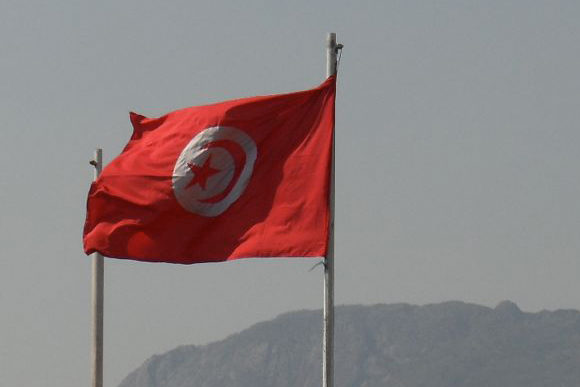
Nov 7, 2023 | News
Arbitrary restrictions and excessive government control.
(Tunis, 7 November 2023) – The draft law on associations submitted by 10 parliamentarians to the Tunisian Parliament on 10 October 2023 would violate the right to freedom of association and endanger civic space in Tunisia if adopted as currently formulated, 8 rights groups said today.
البيان باللغة العربية على هذا الرابط
The draft law, if passed, would replace Decree-Law 2011-88 on associations, which enabled the emergence of a diverse civil society in the aftermath of Tunisia’s 2011 revolution. As presently drafted, it threatens to end more than a decade of work by independent groups. According to official data, over 24,000 civil society organizations are currently registered with the Tunisian authorities, although it remains unclear how many are active today. If adopted in its current form, the draft law would grant the government pervasive control and oversight over the establishment, activities, operations and funding of independent groups, which are one of the last remaining counterweights to President Kais Saied’s autocratic rule.
While the text claims to maintain a notification system for establishing new associations, it would actually introduce a thinly disguised registration system, granting a department under the Prime Minister’s Office the authority to deny a group the right to operate within a month after of registering (article 9.2). Without being required to provide any reasons, the government would also be able to petition the judiciary at any time requesting the cancellation of an association’s registration (article 9.3).
In addition, new organizations would not be allowed to operate until a government-headed “administration of associations” publishes a notice in the Official Gazette, leaving open the possibility of denying a group’s registration. At present, under Decree-Law 2011-88 on associations, an association may begin operating once the representative of the association has notified its registration to the Official Gazette.
Under the draft law, international organizations would be required to obtain prior authorization to register from the Foreign Affairs Ministry (articles 8 and 19). Without setting conditions or deadlines for any such a process, the draft law empowers the Ministry to issue temporary authorizations and to revoke and suspend them at its own discretion (article 20). As a result, international organizations may be arbitrarily denied registration for any reason and without due process, the groups said.
In 2012, the United Nations Special Rapporteur on the rights to freedom of peaceful assembly and association’s report on best practices related to the right to freedom of association recommended a “notification procedure”, rather than a “prior authorization procedure” requesting the authorities’ approval to establish an association as a legal entity. The 2017 Guidelines on Freedom of Association and Assembly in Africa of the African Commission on Human and Peoples’ Rights stipulate that “registration shall be governed by a notification rather than an authorization regime, such that legal status is presumed upon receipt of notification” and that the administrative body overseeing registration should carry out its functions “impartially and fairly.”
The draft law’s preamble states that associations must operate in accordance with the “principles of national orientation,” and must not “violate laws related to good morals,” “disturb public security,” “undermine the unity of the national territory and the republican system,” or “violate national sovereignty.” Such terms are vague, imprecise, arbitrary and overly broad and, as such, do not comply with the principle of legality. As a result, these concepts are open to broad interpretations and the authorities could use them to justify arbitrarily restricting or closing associations that displease them, the groups said.
The draft law places national organizations under “the supervision and control” of the Ministry relevant to their main area of work and international organizations under Prime Minister Office’s supervision (article 6). The current draft law does not specify what such “supervision and control” entail. It also requires associations to inform the pertinent Ministry of any planned activities (article 13).
The draft law also gives rise to concern about surveillance as it empowers the authorities to establish a digital database of associations and volunteers (article 14).
If the draft law is adopted in its current form, then the authorities may interpret its many vague provisions to ban or dissolve associations. The establishment of associations on religious or ethnic grounds is forbidden in the draft law. In addition, the qualification that a group’s work must be “voluntary” may be interpreted as a ban on paid labour by non-profit groups (article 2). The draft text further provides that the Prime Minister’s Office can “automatically” dissolve any group “suspected of terrorism” or that has a “terrorist background” (article 24), without judicial review.
This text also dangerously conflates associations with unions (article 15), which are currently separately governed by the Tunisian labour law, without providing any specific guarantees or sufficient protections for union rights.
National associations would have to obtain prior approval from the Prime Minister’s Office before receiving foreign funding (article 18). Associations that fail to comply with this requirement would risk immediate suspension or dissolution (article 24).
The draft law requires all existing associations to “rectify” their situation in accordance with the new law within a year of the law’s publication.
In 2013, the Special Rapporteur on the right to freedom of peaceful assembly and of association’s report affirmed that a civil society organization’s access to funding from domestic, foreign and international sources was “an integral part of the right to freedom of association.” Requiring groups to get prior government approval to receive foreign funding without specifying the grounds for refusal is inconsistent with the principle of legality and constitutes an arbitrary interference with the right to freedom of association.
Under Article 38 of the Guidelines on Freedom of Association and Assembly in Africa, governments may neither impose blanket bans on foreign funding for civil society groups nor require prior government authorization to receive it.
Decree-Law 2011-88 on associations provides sufficient guarantees and procedures to ensure that civil society groups’ funding be transparent and law compliant, the groups said. The draft law’s foreign funding provisions are open to abuse and may be used to punish and reject funding for organizations critical of the government.
In February 2022, a draft law on associations prepared by the executive that threatened human rights safeguards was leaked and denounced as restrictive by the Tunisian civil society. Shortly after, on 24 February 2022, President Saied announced his intention to “prevent foreign funding to associations.” In light of this, UN experts expressed concern over the then draft law in a communication to the Tunisian authorities in April 2022, to which the Tunisian government responded in June 2022, confirming their intention to amend Decree-law 88.
Since 25 July 2021, President Saied has dismantled Tunisia’s democratic institutions, undermined judicial independence, stifled the exercise of freedom of expression and repressed dissent.
Tunisia is obliged to respect, protect, promote and fulfill the right to freedom of association, guaranteed by Article 22 of the International Covenant on Civil and Political Rights and Article 10 of the African Charter on Human and Peoples’ Rights. Restrictions on the exercise of this right may be permissible only when they are prescribed by law and necessary in a democratic society; that is, using the least restrictive means possible and reflecting basic values of pluralism and tolerance.
“Necessary” restrictions must also be proportionate; that is, carefully balanced against the specific reason for imposing them in the first place. In addition, they may not be discriminatory, including on the grounds of national origin or political opinion or belief.
The Tunisian authorities should refrain from adopting the proposed draft law and, instead, should commit to safeguarding the right to freedom of association as enshrined in Decree-law 88 and under international human right law binding on Tunisia, the groups said. The authorities should ensure that associations are able to operate without political interference, intimidation, harassment or undue restrictions.
Signatories:
1-International Commission of Jurists (ICJ)
2-Euromed Rights
3-Human Rights Watch (HRW)
4-Avocats Sans Frontières (ASF)
5-Access Now
6-World Organisation Against Torture (OMCT)
7-Tahrir Institute for Middle East Policy (TIMEP)
8- International Service for Human Rights (ISHR)
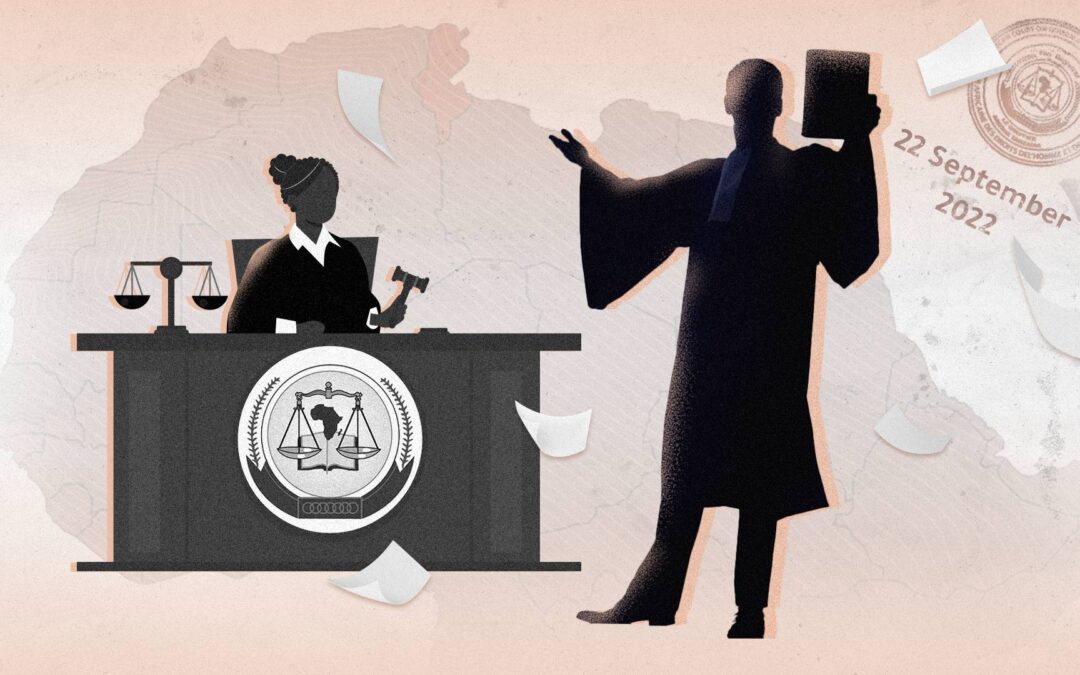
Nov 6, 2023 | News
Today, the African Court of Human and Peoples’ Rights (AfCHPR) opens its 71st Ordinary Session. To mark the occasion, the International Commission of Jurists (ICJ), in collaboration with inkyfada, looks back at AfCHPR’s September 2022 judgement against Tunisia, in which it ordered the republic to return to constitutional democracy and establish an independent constitutional court. The ICJ examines the impact of the judgement on human rights in Tunisia, and how individuals can operationalize the AfCHPR to challenge the curtailment of fundamental freedoms, judicial independence and rule of law in Tunisia.
ICJ’s questions and answers:
It has been more than a year since the African Court on Human and People’s rights issued its judgment in case No. 017/2021, “Ibrahim Ben Mohamed Ben Brahim Belguith v. Republic of Tunisia”, of 22 September 2022. The case was brought by Mr. Belguith, a national of Tunisia and a lawyer, who complained of violations of his rights under the African Charter on Human and Peoples’ Rights and other human rights instruments as a result of the promulgation of several Tunisian presidential decrees adopted under the “state of exception” pursuant to article 80 of the 2014 Constitution since 25 July 2021. In this judgment, the African Court ordered Tunisia to repeal these decrees, to return to constitutional democracy within two years and to ensure the establishment and operation of an independent constitutional court within the same period.
What does this judgment mean and why is it important for the rule of law and human rights in Tunisia? The ICJ provides answers in the Q&A below:
-
- What is the African Court on Human and Peoples’ Rights?
* The African Union
* The African Charter on Human and Peoples’ Rights
* The African Commission on Human and Peoples’ Rights
* The African Court on Human and Peoples’ Rights
* Tunisia’s adherence to the African Human Rights System
-
- Why was the African Court seized of the situation in Tunisia? Contextual overview
* President Kais Saied’s power grab of 25 July 2021
* The absence of a Constitutional Court
-
- What did the 22 September 2022 judgment rule?
* How the African Court came to rule on the matter: the application
* What the judgment ruled:
-
- What are the next steps?
* Implementation
* Other complaints against Tunisia pending before the African Court
Download the full Q&A in English here
Download the full Q&A in French here
Download the full Q&A in Arabic here
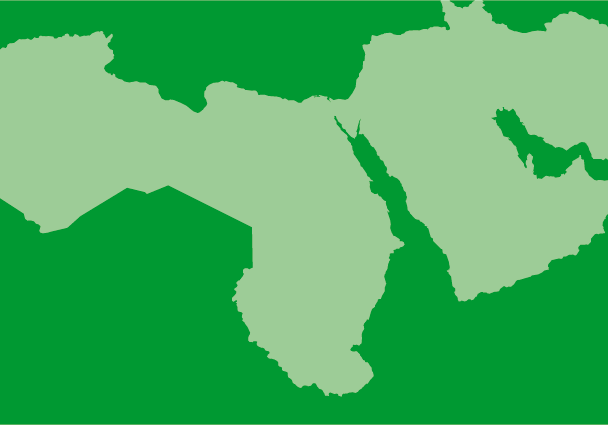
Nov 2, 2023 | News
The International Commission of Jurists renews its call for an immediate ceasefire in the Gaza Strip following the most recent Israeli attacks on the densely populated Jabalia refugee camp in northern Gaza on 31 October and 1 November 2023.
According to the Gaza Health Ministry, the two strikes killed at least 195 people. The Israel Defence Forces (IDF) claimed that the 31 October airstrike targeted and killed Ibrahim Biari, a claim Hamas denied. The IDF further claimed that Biari was one of the Hamas commanders responsible for the 7 October attacks in Israel.
Intentionally directing an attack against civilians or civilian objects or intentionally launching an attack knowing it will cause disproportionate civilian harm is a war crime. The Office of the UN High Commissioner for Human Rights expressed concern that these attacks may be “disproportionate attacks that could amount to war crimes”.
Gaza’s Health Ministry maintains that the number of Palestinians killed since 7 October has surpassed 9,000 and the Committee on the Rights of the Child has expressed concern that more than 3,500 children have been killed.
The ICJ considers that an immediate, durable and fully respected ceasefire by all sides, and an immediate cessation of hostilities in the Gaza Strip, including direct, indirect and disproportionate attacks on civilians and civilian objects, are necessary to stop further loss of civilian life.
According to the Independent International Commission of Inquiry on the Occupied Palestinian Territory, including East Jerusalem, and Israel, there is already clear evidence that war crimes may have been committed in Israel and Gaza since 7 October.
In this regard, the ICJ notes the visit by the Prosecutor of the International Criminal Court, Karim Khan KC, to the Rafah Crossing on the Gaza-Egypt border on 29 October 2023 and, in particular, commends his commitment to investigate the ongoing attacks, and his call for all further attacks to cease immediately. The Prosecutor confirmed that his Office has an ongoing investigation with jurisdiction over the Palestine situation, including current events in Gaza.
In light of the above, the ICJ considers that, only an immediate ceasefire will prevent war crimes, and prevent the risk of crimes against humanity and genocide.
The ICJ calls upon Palestinian armed groups to adhere to their obligations under international humanitarian law, including by releasing all hostages in their custody, and urges the IDF, particularly its military advocate generals, to ensure full respect for international humanitarian law in the conduct of hostilities.
Contact:
Said Benarbia, Director, ICJ’s Middle East and North Africa Programme, email: said.benarbia@icj.org
Katherine Iliopoulos, Legal Adviser, ICJ’s Middle East and North Africa Programme, email: katherine.iliopoulos@icj.org
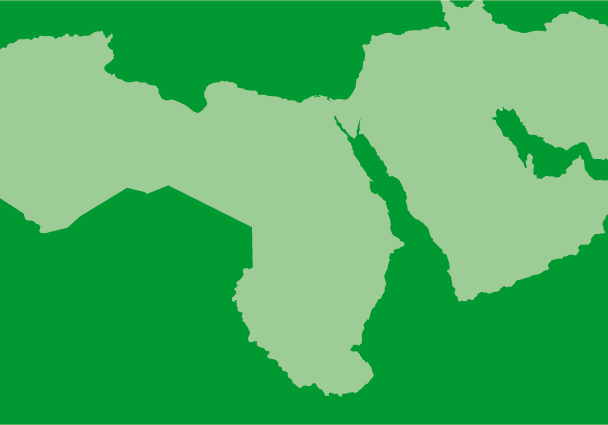
Oct 19, 2023 | News
The International Commission of Jurists (ICJ) condemns the strike on al-Ahli hospital in the Gaza Strip on 17 October 2023, which according to the Palestinian Health Ministry killed more than 500 Palestinian civilians, mainly women and children, and injured hundreds more.
“Civilians and hospitals must be protected at all times”, said Said Benarbia, Director of the ICJ’s MENA Programme. “Intentional attacks on hospitals may amount to war crimes under international humanitarian law and must cease immediately”, added Benarbia.
Palestinian sources have said that the massacre was caused by an Israeli air strike. The Israeli Defence Forces have denied any responsibility, claiming that it was caused by a failed rocket launch by Palestinian armed groups.
Under the Geneva Conventions and customary international humanitarian law, States have an obligation to investigate war crimes with a view to bringing alleged perpetrators to justice.
The ICJ calls on the Office of the Prosecutor of the International Criminal Court (ICC) to allocate the necessary resources to respond to the escalating situation in Israel and Gaza with a view to investigating and establishing criminal responsibility for alleged war crimes and other violations of international humanitarian law committed by both parties.
According to the ICC Prosecutor Karim Khan, the ICC has jurisdiction over potential war crimes committed by Palestinian armed groups in Israel and Israelis in the Gaza Strip, even though Israel is not a State party. In 2015, Palestine acceded to the ICC Statute. In 2021, the Court ruled that its jurisdiction “in the Situation in Palestine extends to the territories occupied by Israel since 1967, namely Gaza and the West Bank, including East Jerusalem.”
On 12 October the Israel Defence Forces (IDF) ordered the entire population of northern Gaza, that is, more than 1 million people, to evacuate to southern Gaza within 24 hours in advance of a likely military ground offensive.
On 14 October, the World Health Organization (WHO) strongly condemned Israel’s repeated orders for the evacuation of 22 hospitals in the Gaza strip, and called on Israeli authorities to protect health facilities, health workers, patients and civilians.
“The Israeli evacuation order was issued in the absence of safe passage or a safe destination. It may amount to a transfer of parts of the population of the occupied territory, a war crime under the ICC Statute and a serious violation of international humanitarian law”, said Benarbia.
Under international humanitarian law, hospitals and other medical facilities are considered to be protected civilian objects. Unless they are used for military purposes, they shall be protected at all times and may not be the object of attack.
Under international humanitarian law, all parties to an armed conflict have an obligation to distinguish between military and civilian targets and to take all feasible precautions to protect civilians from attacks and from the effects of military operations. Indiscriminate attacks on civilians and civilian objects, including those perpetrated using weapons that are indiscriminate by nature, amount to breaches of international humanitarian law. Intentionally directing attacks against civilians amounts to war crimes under the under the Statute of the ICC and customary international law.
Furthermore, the ICJ is deeply concerned by reports of the use of white phosphorus by Israel in other military operations in Gaza and Lebanon.
“Israel must refrain from using white phosphorus, and any other means and methods of warfare that are inherently indiscriminate or that cause superfluous injury or unnecessary suffering”, added Benarbia.
White phosphorus has the potential to cause civilian harm due to the severe burns it causes and its lingering long-term effects on survivors. While it is not per se a prohibited weapon under international humanitarian law, its use in densely populated areas, such as the Gaza Strip, is prohibited as it violates the international humanitarian law requirement that parties to the conflict take all feasible precautions to avoid civilian injury and loss of life.
The ICJ also condemns the continued detention by Palestinian armed groups of approximately 200 hostages.
“Hostage-taking is prohibited under international humanitarian law, and those detained must be released immediately”, said Benarbia.
The ICJ also reiterates calls by the United Nations Secretary General, WHO and others for the establishment of a humanitarian corridor to enable humanitarian aid to enter the Gaza Strip.
Contact:
Said Benarbia, Director of the ICJ’s Middle East and North Africa Programme, email: said.benarbia(at)icj(dot)org









